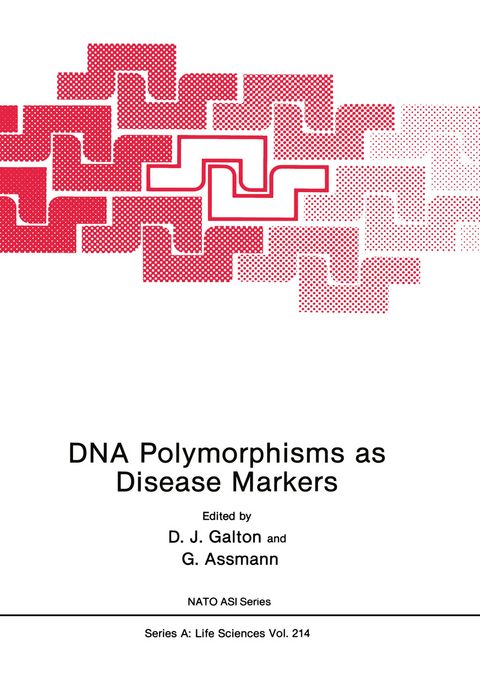
DNA Polymorphisms as Disease Markers
Springer-Verlag New York Inc.
978-1-4613-6640-9 (ISBN)
Theoretical Background.- Genetic Approaches to Common Diseases.- A Candidate Gene Approach to the Genetics of Normal Lipid Variation: DNA Association Studies and Genotype by Environment Interaction.- Molecular Genetics Approach to Polygenic Disease - Initial Results from Atherosclerosis Research.- Diabetes.- Facilitative Glucose Transporters: Regulation and Possible Role in NIDDM.- Molecular Genetic Approach to Polygenic Disease: Dependent Diabetes Mellitus (NIDDM).- Lipids.- HDL and Reverse Transport of Cholesterol: Insights from Mutants.- Apolipoprotein E Polymorphisms and the Genetic Heterogeneity of Familial Dysbetalipoproteinaemia.- Abnormalities of Apolipoprotein B Metabolism in the Lipid Clinic.- Genetic Variation at the ApoA-I, CIII, A-IV Gene Complex: A Critical Review of the Associations between the Pst1 and Sst1 RFLPs at this Locus with Lipid Disorders.- The Molecular Basis of the Chylomicronemia Syndrome.- Lipoprotein Lipase Gene Variants in Subjects with Hypertriglyceridaemia and Coronary Atherosclerosis.- Atherosclerosis.- Atherosclerosis: The Genetic Analysis of a Multi-Factorial Disease.- RFLP Markers of Familial Coronary Heart Disease.- DNA Polymorphisms as Disease Markers.- Participants.
| Erscheint lt. Verlag | 18.10.2012 |
|---|---|
| Reihe/Serie | Nato Science Series: A ; 214 |
| Zusatzinfo | VIII, 160 p. |
| Verlagsort | New York, NY |
| Sprache | englisch |
| Maße | 178 x 254 mm |
| Themenwelt | Medizinische Fachgebiete ► Innere Medizin ► Kardiologie / Angiologie |
| Studium ► 2. Studienabschnitt (Klinik) ► Humangenetik | |
| Naturwissenschaften ► Biologie ► Biochemie | |
| ISBN-10 | 1-4613-6640-2 / 1461366402 |
| ISBN-13 | 978-1-4613-6640-9 / 9781461366409 |
| Zustand | Neuware |
| Haben Sie eine Frage zum Produkt? |
aus dem Bereich


